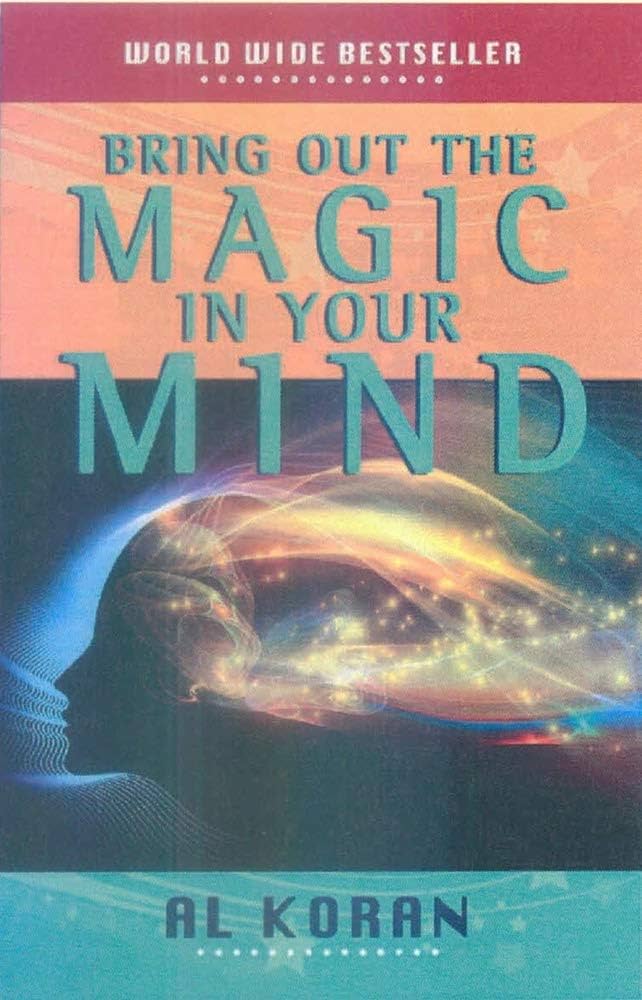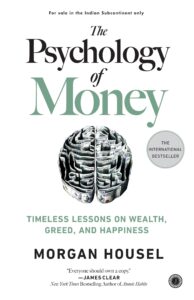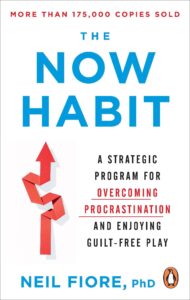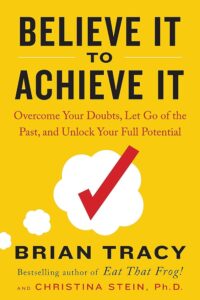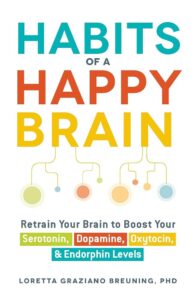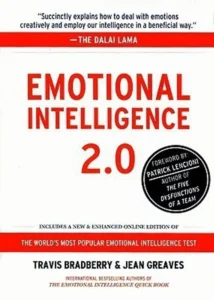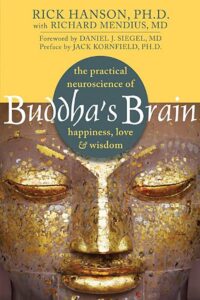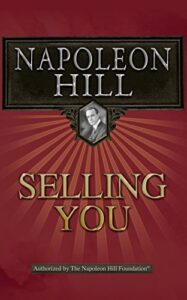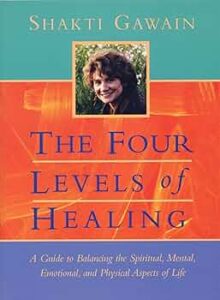Summary
✨ Bring Out the Magic in Your Mind Chapter wise In depth Summary
Unlock your subconscious. Transform your reality. Live the magic within you.
🌟 The Core Message:
You are not ordinary. You have within you a powerful mind, capable of healing, attracting, creating, and transforming your life—if you learn how to use it. Al Koran teaches that your subconscious is your silent genie. It obeys your beliefs, your words, your images, and your emotions. When you align these with intention and faith—you activate real magic.
🧠 Key Principles of the Book:
🔮 1. Belief Is the Beginning
Your reality follows your strongest belief. Believe before you see, and you’ll see what others call impossible.
🎥 2. Visualization Creates Reality
What you picture repeatedly and vividly—especially with feeling—your subconscious begins to build.
🗣️ 3. The Subconscious Listens
Speak to it clearly, daily. Use affirmations, meditation, and sleep-time suggestions to reprogram your outcomes.
💓 4. Love and Gratitude Are Amplifiers
Radiate love, and you attract joy, people, and abundance. Gratitude is the master key—it multiplies everything.
🧘 5. Silence, Breath, and Laughter Heal
Stillness connects you to higher guidance. Laughter dissolves fear. Breath calms and energizes your body and mind.
💡 6. Change Is the Trigger
When you act with courage and embrace change, you activate the energy that makes transformation inevitable.
🧭 7. Habits, Time, and Focus Are Magic Tools
Small daily disciplines, wisely repeated, create unstoppable momentum. Time responds to your focus and clarity.
💖 8. Romance, Music, Flowers, Color—all Carry Vibration
Surround yourself with beauty, music, and love. They’re not luxuries—they are high-frequency tools for mental magic.
🧿 9. Use Charms, Impressions, and Rituals to Reinforce Belief
Objects, clothes, and routines can anchor belief. Use them wisely—but never forget, the magic is in you.
😨 10. End Fear. Begin Faith.
Fear is imagination in reverse. Train your mind to expect the best, and you’ll create it.
🗝️ The Greatest Magic Word: “Thank You”
Gratitude transforms the ordinary into the extraordinary. The more you give thanks, the more you receive.
🔑 Final Truth:
You are not a passive observer of life—you are a creator. Every thought, feeling, word, and act is a brushstroke on the canvas of your future.
Believe. Visualize. Speak with faith. Act with love. And the magic will answer.
About the Author: Al Koran was a renowned British mentalist, author, and expert on the powers of the human mind. Once a successful magician and performer, he later devoted his life to understanding and teaching the secrets of the subconscious. Blending psychology, hypnosis, and spiritual insight, Koran believed every person possesses untapped mental magic waiting to be awakened. His bestselling book, *Bring Out the Magic in Your Mind*, inspired millions to harness belief, visualization, and inner strength to transform their lives. Al Koran’s legacy endures as a pioneer who bridged the worlds of entertainment, self-help, and mental mastery.
Chapter 1: The Magic of Belief
Hook:
The gateway to every miracle you seek is one invisible force—belief.
Chapter Summary:
Al Koran’s journey began with relentless curiosity—”Why are some people successful, happy, healed, while others are stuck?” From childhood, he observed both miracles and mysteries. After meeting spiritual masters, scientists, and skeptics, he found one unshakable truth: belief changes everything.
He shares the story of Gabriel Gargam, a man paralyzed and hopeless, who stood and walked again—not through treatment, but through belief at Lourdes. A housewife cured her fatigue with a sugar candy, thinking it was a miracle tablet. Magic? Placebo? No—it was belief commanding the subconscious to act.
And the most powerful warning of all—if belief can heal and bless, it can also destroy when directed with hate or harm. Use this force wisely.
Core Lessons:
- Belief is the activator of miracles.
- Your results mirror your expectations.
- Keep your dreams private—doubt from others can block your magic.
- Belief works best when combined with intention and feeling.
Power Phrase:
“Believe—because your mind obeys what your heart expects.”
Chapter 2: How Belief Works
Hook:
You are an electric field walking through a magnetic world—are you switched on?
Chapter Summary:
Al Koran explains that your body is electric, your thoughts are magnetic, and your belief is the switch. Just like rubbing a cat or balloon generates electricity, your mind can attract real outcomes by building inner current through awareness.
He explores how ancient yogis, healers, and even modern masseurs align with the earth’s magnetic poles to intensify energy. Something as simple as sleeping with your head to the North or uncrossing your arms while thinking can align your magnetic field with the universe.
You can either magnify your energy through belief and breath—or kill it through doubt and negativity.
Core Lessons:
- The body is magnetic; thoughts carry electro-magnetic waves.
- Belief needs to be amplified by physical alignment and mental clarity.
- Negative thoughts short-circuit your power.
- Deep breathing, open posture, and sleep orientation enhance inner energy.
Power Phrase:
“You’re not powerless—you’re unplugged. Reconnect and radiate belief.”
Chapter 3: The Magic of Visualization
Hook:
See it clearly. Feel it deeply. Live it mentally. That’s how magic starts working for real.
Chapter Summary:
Koran retells how a poor man, Joseph Kennedy, visualized winning the Irish Sweepstake nightly until it became true. Another woman “pretended” to dust her imaginary piano—weeks later, a stranger offered her one for free.
Visualization isn’t fantasy—it’s the preliminary blueprint for reality. It tells your subconscious exactly what to build. The key is vivid imagery and strong emotion. Want a new car? Don’t just wish—see yourself driving it. Smell the leather. Hear the engine. Taste the joy.
Want a house? See every detail—curtains, carpets, furniture. Even better—buy a small object for it to anchor the belief. This isn’t childish imagination—it’s spiritual engineering.
Core Lessons:
- Your subconscious creates what you visualize with clarity and emotion.
- Be specific and feel the outcome as already real.
- Action isn’t forced—visualization triggers natural guidance and momentum.
- Repetition is vital. Visualize daily until the picture becomes reality.
Power Phrase:
“If you can see it and feel it, the universe can’t help but build it.”
Chapter 4: Power of the Subconscious
Hook:
Your conscious mind is the driver—but your subconscious is the engine. Know how to command it, and anything becomes possible.
Chapter Summary:
Think of your mind as a magician’s top hat. What appears on the outside is only a trick—the real magic happens underneath. That’s your subconscious: the silent partner in every decision, every emotion, and every miracle.
Al Koran shows that the subconscious isn’t just a poetic idea—it’s your built-in miracle machine. It regulates your heartbeat, heals wounds, and runs your memory without instruction. But here’s the secret: it will also follow direct commands—if you give them clearly and with emotion.
He tells stories of mothers curing their children’s asthma by whispering healing affirmations during sleep. Of a woman who kept a child alive in a blizzard by repeating the words “You must stay alive.” Of Yogis who don’t bleed when pierced. Of people commanding themselves to wake at 5:00 AM—and doing it, without an alarm clock.
Whether healing, creating, or overcoming, your subconscious obeys your dominant thoughts. It listens best at night, when your conscious mind is quiet.
Core Lessons:
- Your subconscious never sleeps—it listens and executes what you consistently say and feel.
- Repetition is its language. Speak to it like a child: clearly, positively, and with certainty.
- Sleep on your desires—literally. Place your written goals under your pillow or repeat affirmations before sleep.
- The stronger your emotion, the faster the subconscious responds.
- Don’t command it with doubt; command it with belief and trust.
Power Phrase:
“The world you see is the world your subconscious was told to create.”
Chapter 5: Silence and Meditation
Hook:
In the silence, the universe speaks. In stillness, your power awakens.
Chapter Summary:
Al Koran urges us to do what most people never dare: be still. In a noisy, restless world, silence is treated like an inconvenience. But to Koran, it’s the sacred chamber where magic is born.
He reminds us that every great teacher, from the prophets to modern mystics, withdrew from the noise to tap into something deeper. Not just silence—but inner listening. True meditation isn’t sitting cross-legged pretending to be spiritual. It’s entering that quiet place within where your subconscious and the universe align.
In this silence, ideas surface. Guidance appears. Healing flows. It’s a power circuit, connecting your desires to their outcomes.
Koran insists that you make silence a habit. Even five minutes of conscious stillness each day creates ripples that change your entire reality. It’s here you command your subconscious, cleanse your thoughts, and channel your vision.
This chapter isn’t about doing more. It’s about becoming more by doing less. Just be still—and know.
Core Lessons:
- Silence is a sacred amplifier of inner power.
- Daily meditation connects you to your subconscious and divine energy.
- In stillness, your real desires and next steps become clear.
- You must consciously retreat from noise to access the higher dimensions of your mind.
- Meditation is not an escape—it’s a command center.
Power Phrase:
“When your mind is quiet, your magic becomes loud.”
Chapter 6: The Magic of Love
Hook:
Love isn’t just emotion—it’s the highest vibration of the mind, and the most potent power for magic.
Chapter Summary:
Al Koran pulls back the curtain on a universal force far more powerful than logic, talent, or even ambition—love. Not just romantic love, but a deep, generous affection for life, for others, and for yourself.
He explains how those who radiate love—real love—tend to attract success, joy, health, and abundance effortlessly. Why? Because love aligns you with your creative energy, clears negative static from your aura, and turns your subconscious into a miracle-producing magnet.
He tells stories of people transformed—not by wealth or genius, but by opening their hearts. A hardened businessman softened by love became more prosperous. A lonely woman, who shifted from self-pity to self-love, began attracting friends and suitors she once thought impossible.
Hate, envy, criticism—these are emotional poisons that sabotage your power. Koran warns that unless you consciously replace these with love, your mind’s magic cannot activate. Love isn’t a “nice idea.” It’s the fuel of miracles.
🔑 Core Lessons:
- Love is a magnetic emotion that heals, attracts, and uplifts.
- Holding grudges or criticizing others blocks your subconscious power.
- You must love yourself fully—only then can you love others purely.
- Love clears mental fog and opens intuitive channels.
- The more love you give, the more joy and success return to you.
✅ Key Pointers:
- Practice gratitude—it is love in action.
- Speak kindly of others, even in their absence.
- Meditate on someone you love—feel your heart expand.
- Forgive quickly; grudges drain your life force.
- Smile more—it subconsciously opens both your own heart and others’.
Power Phrase:
“To bring out the magic in your mind, flood it with love—it’s the highest form of belief.”
Chapter 7: The Secret of Wealth
Hook:
Wealth doesn’t start in your wallet—it starts in your mind.
Chapter Summary:
Al Koran breaks a myth in this chapter: money isn’t hard to get—it’s hard to believe you deserve. The real poverty is not in your bank account, but in your thoughts.
He reminds us of people who, despite earning well, always remain broke. Why? Because they carry a deep, subconscious belief that wealth is “wrong,” “evil,” or “out of reach.” Koran challenges these beliefs head-on.
He teaches that wealth is a reflection of inner permission. When you visualize riches, speak prosperity, feel abundance—even while broke—you begin the mental blueprint for wealth. He tells of a man who imagined his paycheck swelling each week—and within months, he got unexpected promotions and opportunities. Magic? No. Just mental wealth attracting material wealth.
But here’s the twist—wealth isn’t just money. It’s peace, fulfillment, freedom, and impact. If you seek money out of fear, it escapes you. If you invite wealth with joy and purpose, it stays.
🔑 Core Lessons:
- Wealth responds to expectation. Think rich to become rich.
- Feeling poor—even when not—is a subconscious sabotage.
- Prosperity is a byproduct of service, gratitude, and clarity.
- Scarcity thinking blocks opportunity and chokes creativity.
- Money is neutral. It’s your belief about it that creates power or poverty.
✅ Key Pointers:
- Replace “I can’t afford it” with “How can I afford it?”
- Affirm: “I love money and it loves me.”
- Visualize your ideal lifestyle daily.
- Tip generously—even small amounts signal abundance.
- Avoid complaining about prices; bless the money you spend.
Power Phrase:
“Wealth is not something you chase—it’s something you magnetize.”
Chapter 8: The Magic of Friendship
Hook:
True friendship isn’t built—it’s magnetized through the magic of character and intention.
Chapter Summary:
In this heartwarming chapter, Al Koran shows that friendship is one of life’s richest treasures, and like all treasures, it must be earned—not demanded.
He tells the story of people who felt lonely despite being surrounded by others. Why? Because they expected love without first offering it. Koran argues that you don’t attract friends—you become the kind of person friends are drawn to.
Real friendship begins when you radiate sincerity, positivity, encouragement, and warmth. When you truly listen. When you offer without expectation. These invisible signals form a magnetic aura—and people feel it.
He warns against gossip, envy, and complaining—these are repellent forces that push people away, no matter how charming you think you are. But when you broadcast joy and integrity, you draw in friendships that lift your life.
Friendship, Koran says, is not an accident—it’s a spiritual law of like attracting like.
🔑 Core Lessons:
- To have better friends, become a better friend.
- Sincerity, gratitude, and kindness are powerful attractors.
- Negative emotions (envy, gossip, bitterness) repel good people.
- True friendships multiply success, health, and joy.
- Friendship is a spiritual asset, not a social transaction.
✅ Key Pointers:
- Greet people with enthusiasm; use their names.
- Praise often—especially the little things.
- Never speak ill of anyone—it weakens your energy.
- Write a thank-you message to someone weekly.
- Show up when it counts—during sorrow or celebration.
Power Phrase:
“The quickest way to make a friend is to be one—with warmth, words, and wisdom.”
Chapter 9: The Magic of Change
Hook:
You can’t create a new life with the same old thoughts. Change isn’t a risk—it’s the real magic.
Chapter Summary:
Al Koran begins this chapter with a simple but revolutionary idea: Change is the universal doorway to power. Most people fear it, resist it, or delay it—but those who embrace it, accelerate their success and happiness.
He shares the stories of individuals who were stuck in jobs, relationships, or routines they hated—but stayed put out of fear. The result? Depression, bitterness, stagnation. But the moment they made even a small decision to change direction, new life rushed in like fresh air. The universe rewards motion.
Koran teaches that your subconscious responds to decisions. It doesn’t care if you’re ready—it only activates when you commit. He insists: Don’t wait until you’re confident to change. Confidence comes after movement, not before.
Resisting change keeps you locked in your current reality. Embracing change—even with trembling hands—unlocks your deeper power.
🔑 Core Lessons:
- Change is not dangerous—it’s divine.
- The subconscious responds to decisions, not hesitations.
- Progress happens at the speed of your courage.
- Fear of change is often just fear of leaving the familiar, not the better.
- Every breakthrough begins with a choice to change.
✅ Key Pointers:
- Identify one habit, belief, or routine you must change—and act.
- Don’t wait for perfect timing—it doesn’t exist.
- Speak affirmations like: “I welcome positive change in my life.”
- Take small risks daily to build emotional resilience.
- Remember: staying stuck is far scarier than moving forward.
Power Phrase:
“Your life changes the moment you do.”
Chapter 10: The Magic of Charms & Mascots
Hook:
It’s not the object that holds the power—it’s the belief you invest in it.
Chapter Summary:
In this fascinating chapter, Al Koran dives into the world of charms, talismans, and mascots—objects that people believe bring luck, protection, or success.
But are these items magical in themselves? Koran says no. The real magic lies in the belief they carry.
He shares stories of athletes who win with a lucky jersey, actors who never go on stage without a sacred token, and children who clutch teddy bears to calm fear. The object, he explains, is merely a channel for belief—a symbolic trigger that unlocks the subconscious mind.
What matters is not the charm, but the confidence and positivity it releases within you. If a stone, ring, or photo helps you stay calm, focused, or inspired—then it becomes magical, because you made it so.
Koran warns, however, never to rely only on the charm. It is a tool, not a crutch. The real power is still in your mind and heart.
🔑 Core Lessons:
- A charm becomes powerful only when belief is attached to it.
- Belief, when anchored in an object, activates the subconscious.
- Charms can focus intention and calm anxiety.
- Don’t depend on the object—use it as a symbol, not a source.
- Faith is transferable—from the mind to a charm, and back.
✅ Key Pointers:
- Carry a personal token that reminds you of strength or purpose.
- Assign meaning to objects that ground your positive intentions.
- Don’t dismiss others’ charms—respect their belief systems.
- Use rituals or objects to anchor focus before a big task.
- Always remember: you are the real magic, not the item.
Power Phrase:
“It’s not the charm—it’s the charge of belief that brings the magic.”
Chapter 11: The Magic of Right Impressions
Hook:
You’re always making an impression—why not make it magic?
Chapter Summary:
In this empowering chapter, Al Koran unveils a subtle truth: first impressions often decide your destiny. The way you speak, walk, dress, and carry yourself sends messages to the world—and to your subconscious.
He explains that your mind is like wet cement during moments of interaction. Whatever impression you make—on others or on yourself—hardens into belief. And belief creates reality.
Koran tells of people who got jobs, dates, or deals not because they were the best—but because they created the right emotional impact within seconds. Their handshake, their energy, their voice—it all screamed confidence and success.
He warns that shabby thinking leads to shabby presentation—and vice versa. But when you dress with care, speak with purpose, and move with poise, you’re not being superficial—you’re programming your inner world to align with greatness.
In short: the outside reflects the inside. But it also shapes the inside. The magic is mutual.
🔑 Core Lessons:
- Every impression you make shapes others’ expectations—and your own.
- Your image affects your confidence and your subconscious programming.
- Self-respect shows up in how you present yourself to the world.
- The subconscious “reads” posture, tone, and grooming as signals of belief.
- Confidence can be built by acting the part before you feel it.
✅ Key Pointers:
- Dress one level higher than expected—it changes how you feel.
- Walk tall, speak clearly, and smile genuinely.
- Watch your posture—slouching shrinks your confidence.
- Visualize the impression you want to make before meetings or interviews.
- Ask: “What story does my presence tell the room?”
Power Phrase:
“You don’t just impress the world—you impress your subconscious into success.”
Chapter 12: The Magic of Laughter
Hook:
A laugh isn’t just an escape—it’s a release of power that heals, uplifts, and attracts.
Chapter Summary:
Al Koran invites us to discover one of the most underestimated tools of personal magic: laughter. It’s not just for amusement—it’s a therapy, a weapon, a light in the darkness.
He explains that laughter resets the mind, neutralizes fear, and even clears emotional and physical blockages. The subconscious reads laughter as a sign that all is well. When you laugh, even at your troubles, you reclaim control.
Koran shares stories of people who used humor to conquer illness, overcome failure, and even survive tragedy. He reminds us that many great leaders and thinkers had a secret weapon—they knew how to laugh at life’s absurdities.
He warns against taking yourself too seriously. A rigid mind is a blocked mind. But a joyful mind? It’s fluid, magnetic, irresistible.
In the face of setbacks, anxiety, or pressure, laughter doesn’t mean ignoring pain—it means rising above it. It’s how you whisper to the universe: I’m still standing. And I’m stronger than this.
🔑 Core Lessons:
- Laughter instantly shifts you into a positive, magnetic state.
- Humor dissolves fear, doubt, and resistance in the subconscious.
- People are drawn to those who uplift and energize.
- Taking life too seriously weakens your ability to adapt and grow.
- Laughter is a powerful signal to your mind: I choose joy.
✅ Key Pointers:
- Laugh daily—watch comedies, read jokes, share funny memories.
- Smile before phone calls or meetings—it sets a winning tone.
- Learn to laugh at minor problems; don’t give them your energy.
- Use humor to diffuse conflict and build connection.
- Start the day by recalling something that made you laugh hard.
Power Phrase:
“When you laugh, you tell the universe: ‘I have already won.'”
Chapter 13: The Magic of Color
Hook:
Color isn’t just seen—it’s felt, and it shapes your emotions, energy, and success.
Chapter Summary:
Al Koran opens our eyes to a hidden but powerful form of magic: color psychology. Every shade around you is affecting your thoughts, feelings, and even your decisions—whether you realize it or not.
He explains how ancient cultures, including the Egyptians and Tibetans, used colors in healing, meditation, and rituals. Why? Because colors emit vibrations that interact with your subconscious mind. They energize, calm, inspire—or even depress.
Koran tells of people who changed their entire outlook just by repainting their rooms, choosing brighter clothes, or surrounding themselves with vibrant flowers. It’s not about fashion—it’s about frequency. Want to feel confident? Wear red. Need clarity? Bring in blue. Seeking peace? Embrace green.
He challenges us to audit our environments. Are your walls dull? Your clothes too dark? Your workspace lifeless? That could be dulling your magic. You are a visual being—what you see, you feel. What you feel, you attract.
Color is your silent ally in shaping the mood of your mind—and the results in your life.
🔑 Core Lessons:
- Color influences the subconscious mind on a vibrational level.
- Bright, warm colors uplift energy; dull or dark tones may drain it.
- Your environment and wardrobe can enhance or block your inner magic.
- You can “color code” your intentions—choose colors to match desired states.
- Conscious use of color empowers mood, confidence, and clarity.
✅ Key Pointers:
- Add fresh colors to your workspace—flowers, artwork, accessories.
- Wear bold or bright colors during key events or low-energy days.
- Repaint dull rooms in uplifting tones (yellows, blues, pastels).
- Keep a journal using different ink colors to spark creativity.
- Surround yourself with colors that make you feel alive.
Power Phrase:
“When you change the colors around you, you shift the energy within you.”
Chapter 14: The Magic of Flowers
Hook:
Flowers are more than decoration—they’re living messages of harmony, beauty, and unseen energy.
Chapter Summary:
Al Koran takes us into the delicate, vibrant world of flowers, and reveals something profound: they hold magnetic energy that uplifts the mind and stirs the soul.
He explains that flowers have been used for centuries not just to beautify, but to heal, inspire, and even transform. Their shapes, colors, scents—all radiate subtle vibrations that your subconscious picks up. Just having fresh flowers nearby can change your mental state, elevate your energy, and unlock feelings of peace and optimism.
He recounts moments where people battling grief or fatigue found unexpected joy in a single bloom. A quiet room came alive with one vase of tulips. A tired mind cleared simply by tending to a garden. These aren’t coincidences—this is the magic of natural beauty speaking to the deeper self.
Flowers are silent teachers of gratitude, renewal, and abundance. They show us how to open up, how to bloom after darkness, and how to attract without striving—just by being vibrant and real.
🔑 Core Lessons:
- Flowers radiate beauty and natural magic that affects your mood and energy.
- The subconscious mind responds powerfully to their color, scent, and form.
- Keeping flowers around inspires emotional balance, joy, and creativity.
- Flowers are symbols of effortless attraction—just like the magic in you.
- Tending to flowers can be a mindfulness practice and a magnetic ritual.
✅ Key Pointers:
- Place fresh flowers in your living space—especially where you work or rest.
- Visit gardens or flower markets regularly to recharge visually and energetically.
- Choose flowers by color based on what you want to feel (yellow = joy, purple = peace).
- Gifting flowers spreads emotional healing—don’t wait for an occasion.
- Grow even a small plant or bloom—watch your mindset grow with it.
Power Phrase:
“Flowers remind your subconscious how beautiful life already is—and how much more is blooming.”
Chapter 15: The Magic of Right Habits
Hook:
You don’t rise to your goals—you fall to your habits. Make them magical.
Chapter Summary:
Al Koran pulls no punches in this chapter: your future is hidden in your daily routine. You might dream big, visualize often, or believe deeply—but if your habits work against your magic, they sabotage everything.
He shares how successful individuals don’t leave results to chance—they build habits that lock success into their daily rhythm. Right habits are like spells repeated daily. Eventually, your subconscious accepts them as truth—and makes them your reality.
Koran warns against “small indulgences”—the snooze button, the gossip break, the unnecessary purchases—because these harmless acts create patterns of powerlessness. And once your subconscious records that, it becomes your default.
But the good news? The smallest positive ritual—like breathing deeply every morning, dressing sharply, visualizing your goals—can reprogram your mind and amplify your results. Right habits are magic disguised as discipline.
He reminds us: don’t wait for motivation—build structure. Then motivation follows.
🔑 Core Lessons:
- Habits shape identity and belief more than occasional efforts.
- Right habits signal to the subconscious: I am in control. I am capable.
- Small disciplines compound into massive transformations.
- Your environment must support the habits you want to build.
- Habits are the autopilot of your success—or your failure.
✅ Key Pointers:
- Start and end your day with a magic-triggering routine (gratitude, breathwork, reading).
- Replace one negative habit with a positive one today—no delay.
- Track your habits for 30 days to build consistency and awareness.
- Make your environment “habit friendly”—remove temptations, display goals.
- Affirm daily: “Every day, my habits bring me closer to my magic.”
Power Phrase:
“Your habits cast the spells that become your life—repeat only what you want to live.”
Chapter 16: The Magic of Music
Hook:
Music is not just sound—it’s vibration, emotion, and subconscious reprogramming.
Chapter Summary:
Al Koran invites us to tune in—literally—to one of the most powerful forces for emotional and mental transformation: music. It doesn’t just entertain—it penetrates the soul, rewires the mind, and amplifies magic.
He shares stories of people who healed grief, sparked creativity, and shifted their emotional state simply by changing their soundtrack. Why? Because music bypasses logic and goes straight to the subconscious.
The right melody can lift depression. The right rhythm can energize a tired body. The right lyrics can implant belief, joy, or courage. It’s not just background noise—it’s a mental programming tool.
Koran reminds us that ancient mystics, warriors, and healers all used music deliberately: to prepare for battle, induce peace, or call in miracles. You can do the same. Music isn’t just art—it’s emotional engineering.
The key is to become intentional. Don’t just consume music—use it. Make it part of your rituals, your visualizations, your mood elevation. Let music remind your subconscious how powerful, joyful, and aligned you truly are.
🔑 Core Lessons:
- Music has direct access to your subconscious and emotional state.
- Your mood—and your magic—can be controlled by your playlist.
- Music amplifies visualization, meditation, and positive belief.
- Sound vibrations affect your body’s energy and mental clarity.
- Repetition of uplifting lyrics becomes mental affirmation.
✅ Key Pointers:
- Start your day with music that energizes and inspires you.
- Use instrumental music during visualization or writing.
- Avoid music with negative, aggressive, or hopeless themes.
- Create “mood playlists” for confidence, calm, and focus.
- Play peaceful sounds (nature, classical, ambient) before sleep.
Power Phrase:
“The music you choose becomes the mind you live in.”
Chapter 17: Have Done with Fear
Hook:
Fear is not real—it’s a hypnotic lie your mind believes. Banish it, and your power returns.
Chapter Summary:
Al Koran calls fear what it really is: the great thief of magic. Fear doesn’t protect you—it paralyzes you. It keeps your dreams locked behind invisible bars.
He shares stories of people who lived half-lives, never taking chances, never daring, always doubting—until they faced the truth: fear had lied to them.
Koran explains that fear is nothing but misused imagination—a picture painted of things going wrong. Your subconscious, unable to tell truth from fiction, obeys the fear-filled fantasy and manifests it as reality.
But there’s a solution: face it. Expose it. Replace fear with belief and visualize courage instead of collapse. Whether it’s fear of poverty, illness, rejection, or failure—once you see fear as an illusion, its power shatters.
You’re not weak. You’ve just practiced fear longer than you’ve practiced faith. Switch your mental rehearsal. Act as if you’re brave, speak as if you’re sure, and think as if you cannot fail.
That’s when the magic returns.
🔑 Core Lessons:
- Fear is imagination used in reverse—it creates what you don’t want.
- The subconscious acts on fear exactly as it does on belief.
- Courage is a decision, not a feeling. Feelings follow the decision.
- Fear must be replaced, not just resisted—visualize power, not panic.
- You gain power the moment you act despite fear.
✅ Key Pointers:
- Speak this daily: “I have done with fear. It has no place in my world.”
- Visualize yourself succeeding in the very situation that scares you.
- Breathe deeply—fear shrinks in oxygen and calm.
- Write down your fear, then write the opposite and affirm it daily.
- Take small bold steps. Action reduces fear faster than thinking ever could.
Power Phrase:
“Fear fades when faith takes the spotlight—step forward, and the shadows vanish.”
Chapter 18: The Magic of Happiness
Hook:
Happiness isn’t a reward—it’s the secret ingredient that activates all your magic.
Chapter Summary:
In this chapter, Al Koran reveals what most people get backward: they chase success, love, or wealth thinking that will make them happy. But in truth, happiness is the cause, not the effect.
He explains that happiness is not something you wait for—it’s something you decide on. And when you choose it—before the circumstances justify it—you open a channel to miracles, ideas, and abundance.
Koran tells of people who found joy while living in small homes, earning little, or facing great adversity—yet their joy seemed to attract help, opportunity, and solutions that others could only envy. Why? Because happiness is magnetic. It tells your subconscious, “Everything is okay—keep creating more of this.”
He challenges readers to stop postponing joy. Don’t wait for the promotion, the partner, the perfect moment. Be happy now—and those things will come faster. Because your happiness is a signal that you trust life.
Happiness, in Koran’s words, is “mental sunshine”—and without it, nothing grows.
🔑 Core Lessons:
- Happiness is not something to find—it’s something to generate.
- Your subconscious creates more of what your emotional tone expresses.
- Happy people attract opportunities, friends, and healing effortlessly.
- Postponing happiness postpones everything else too.
- Gratitude is the quickest path to lasting happiness.
✅ Key Pointers:
- Start the day with the affirmation: “I choose happiness—right now.”
- List 3 things you’re grateful for each morning and night.
- Smile often—it cues the body and mind into joy.
- Surround yourself with joyful people, music, and images.
- Avoid the trap of “I’ll be happy when…”—flip it: “Because I’m happy, more is coming.”
Power Phrase:
“Happiness is not the goal—it’s the gateway.”
Chapter 19: The Magic of Romance
Hook:
Romance isn’t reserved for a lucky few—it’s a living energy you can awaken and attract.
Chapter Summary:
Al Koran steps into the realm of love and passion, but not from a poetic angle—from a magnetic one. He reveals that romance is not just about finding “the one”—it’s about cultivating the state of being lovable, desirable, alive.
He shares stories of people who, feeling unloved or invisible, began changing their self-image—walking with more confidence, dressing with care, expressing joy. What followed? Unexpected admiration, affection, and even true love. Why? Because romance responds to radiance.
Romance, Koran says, is a frequency. It starts with self-love. When you treat yourself beautifully, others feel invited to do the same. When you visualize a loving, joyful relationship, your subconscious begins to match you with that vision.
He warns that bitterness, self-pity, or desperation repels love. But lightness, joy, playfulness—these are irresistible forces. Romance, after all, is just another form of magic—emotional alchemy.
And whether you’re single, in love, or somewhere in between, the rule holds: To attract love, become love.
🔑 Core Lessons:
- Romance is activated through joy, confidence, and self-love.
- The subconscious brings relationships that mirror your inner emotions.
- Being desirable starts with feeling desirable—not chasing approval.
- Romance thrives in beauty, gratitude, imagination, and fun.
- Visualizing love draws it faster than searching for it.
✅ Key Pointers:
- Treat yourself as someone worthy of deep love and attention.
- Create a vivid mental picture of the relationship you want—see, feel, believe.
- Dress with love in mind—what energy are you sending out?
- Engage in hobbies and passions—you become magnetic when you’re alive.
- Write a love letter to your future partner—invite them through intention.
Power Phrase:
“Romance flows not to those who seek it—but to those who already feel it within.”
Chapter 20: Health That Brings Magic
Hook:
Health isn’t just the absence of illness—it’s the presence of inner power, alignment, and light.
Chapter Summary:
Al Koran redefines health—not as something you chase after you’re sick, but as the foundation for all the magic your mind can create. Without health, belief is weak, visualization is dull, and happiness fades.
He emphasizes that most people talk about illness more than wellness—and in doing so, they unknowingly program their subconscious to obey the sickness narrative. Complaints become affirmations. Diagnoses become life sentences. And the body responds accordingly.
But those who speak of strength, move with energy, breathe deeply, smile freely—these are the people whose health amplifies their magic.
Koran shares stories of miraculous recoveries fueled by belief, joy, and visualization. People who imagined their cells healing, their energy returning, their bodies revitalized—and made it so. Why? Because the subconscious responds not to medicine alone, but to the instructions you give it through thought and feeling.
The truth is simple: your body listens to your mind. Speak health. See health. Feel health. And the magic begins.
🔑 Core Lessons:
- Your health is shaped by what you believe, say, and feel consistently.
- Talking about illness affirms it; talking about wellness activates it.
- The subconscious follows health-based affirmations and visualizations.
- Laughter, breathing, posture, and rest are direct healers.
- Health is the energy that powers all other forms of magic.
✅ Key Pointers:
- Start each day by affirming: “I am strong, radiant, and full of life.”
- Visualize your body healing, glowing, energizing—daily.
- Avoid dwelling on aches, diagnoses, or negative medical talk.
- Breathe deeply, stretch daily, and honor rest as sacred.
- Surround yourself with vitality—sunlight, music, good food, nature, laughter.
Power Phrase:
“Health is not just your foundation—it’s your frequency.”
Chapter 21: The Magic of Time
Hook:
Time isn’t your enemy—it’s your most loyal servant, if you know how to command it.
Chapter Summary:
In this chapter, Al Koran breaks one of the biggest illusions people live under: “There’s never enough time.” He insists the problem isn’t time—it’s how we perceive and use it.
He explains that time, like wealth or health, is governed by mindset. People who achieve the most don’t have more hours—they have more mental clarity, presence, and discipline. They command time by deciding what matters and eliminating what doesn’t.
Koran urges you to stop seeing time as a ruthless taskmaster and start treating it like a magical asset. Every minute is a seed. Waste it, and it rots. Use it with vision, and it blooms into opportunity.
He recounts how small, consistent actions—taken daily and without excuse—produce astonishing results. Five minutes of visualization. Ten minutes of reading. Fifteen minutes of focused work. Compound these wisely, and you collapse the delay between desire and reality.
The key is not to “find time” but to prioritize magic. Make room for it. Live with purpose, not just pace.
🔑 Core Lessons:
- Time is neutral—it expands or contracts based on your focus and belief.
- You always have time for what you truly value.
- Tiny rituals, practiced daily, shape your future more than bursts of effort.
- Clarity multiplies time; confusion destroys it.
- Treat time as sacred—it mirrors your respect.
✅ Key Pointers:
- Begin your day with intention: What magic will I make today?
- Schedule your most important goals—don’t leave them to chance.
- Use “dead time” (waiting, commuting) to think, breathe, or visualize.
- Eliminate time-wasters: overthinking, gossip, digital noise.
- Every hour ask: Is this getting me closer to the life I want?
Power Phrase:
“Time obeys the focused mind—make every moment serve your magic.”
Chapter 22: The Greatest Magic Word
Hook:
There is one word that unlocks every door, multiplies every blessing, and activates your mind’s highest power.
Persuasive Story Summary:
Al Koran ends his magical journey with a secret—not a trick or technique, but a word. A word you’ve used all your life without realizing its infinite power. That word is:
“Thank you.”
Yes, gratitude is the greatest magic word—not because it’s polite, but because it shifts the entire frequency of your mind.
He explains that gratitude doesn’t wait until life is perfect. It makes life perfect by focusing your attention on what is working, what is beautiful, what is possible. And your subconscious—always listening—says, “You like this? Let me give you more.”
Koran shares stories of people who turned their lives around simply by giving thanks daily. For their breath. Their meals. Their hopes. Even their struggles. Because gratitude transforms resistance into receptivity.
The final message is clear: If you want to accelerate your magic, stop asking and start appreciating. Not once a week. Every hour. Every breath.
🔑 Core Lessons:
- Gratitude is the energy that multiplies everything good in your life.
- What you appreciate, appreciates—your subconscious delivers more.
- Thankfulness puts you in a state of receiving and radiating.
- Complaints block blessings. Praise unlocks them.
- Gratitude is not a mood—it’s a practice and a power source.
✅ Key Pointers:
- Begin and end each day by listing 3 things you’re grateful for.
- Say “thank you” for things before they arrive—act as if they’re done.
- Thank your body, your mind, your subconscious—for serving you daily.
- Keep a gratitude journal—or better, speak it out loud daily.
- When you feel low, give thanks for something small. Watch it grow.
Power Phrase:
“Gratitude is the spell that turns your entire life into magic.”


